If you are a health conscious individual, Thailand is a great place to live. It has a great climate, a laid back culture and some pretty amazing culinary delights.
And according the World Health Organization, Thailand has one of the world’s highest number of centenarians (people who reach age 100) as a percentage of its overall population.
No country in the world sees its people eat only healthy food. Nobody’s perfect, and we don’t expect the Thais to be any different.
People who are critical of the Thai diet (and believe it or not, some people are) suggest that Thais use too much sugar. Also that they fry with too much refined vegetable oil, and perhaps add too much MSG. They possibly also eat too much rice.
Thailand’s high level of alcohol consumption is also mentioned as indicating a less than healthy lifestyle.
But the statistics from the WHO have Thailand at number 4 on the global list of citizens who reach the grand old age of 100 years old. This demonstrates that Thailand can be one of the healthiest places in the world to live.
This also makes Thailand a bit of an enigma because the vast majority of countries at the top of this list are developed nations with a high average income per GDP.
Thais, on the other hand, manage to live long lives with far lower average incomes.
Estimated Centenarians per 100,000 people:
- Japan 48
- Portugal 38.9
- Spain 37.5
- Thailand 35.9
- Italy 31.2
Source: Wikipedia/UN
So Why is Thailand So Healthy?
It you take a look at the commonalities that exist between Thailand and the other countries on the list, it is easy to spot some of the similarities.
Thailand is in 4th place in the table, behind only Spain, Portugal and Japan. All these countries eat mainly fresh produce, plenty of fish and less junk food than most other countries.
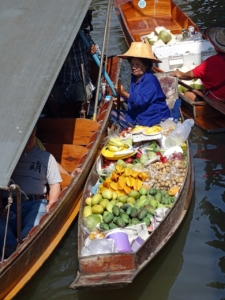 A trip to the local Thai market with its array of fresh fruits, vegetables, herbs and seafood makes it easy to see why the Thais rank so high in the longevity tables.
A trip to the local Thai market with its array of fresh fruits, vegetables, herbs and seafood makes it easy to see why the Thais rank so high in the longevity tables.
See our article: Local Thai Food Markets in Phuket
But Thailand’s high ranking isn’t necessarily down to just nutritional commonalities. There are obviously lifestyle factors that make a difference too.
This article attempts to pinpoint some of the things that help Thais stay so healthy, and achieve amazing levels of longevity across the population.
So here we go:
They Eat Slowly
Next time you are in a Thai restaurant frequented by locals, watch how slowly they eat compared to their western counterparts. Thais don’t rush their food.
Taking the time to eat is easier on your digestive system. Also, eating slowly gives your body the time to tell you that you are already full. Which brings us to the next one.
They Eat Less
At any given meal, Thais tend to eat less. They have smaller portions and eat slowly, like the Japanese. They don’t use chopsticks as often, but they do take their time eating.
Generally speaking, Thais have a lower BMI (Body Mass Index) than people from other countries. The BMI is the measurement of someone’s weight against their height. It has been proven that keeping your weight down is important if you wish to achieve longevity.
The average BMI in Thailand is around 24, and only 10% of the population is considered obese. Compare that to the United States, which has an average BMI of around 29 and around 36% of the population are considered obese. That’s almost 1 in 3 obese Americans.
They Eat a Varied Diet
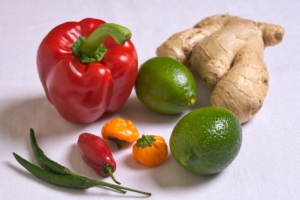 Yes, we’ve heard this before. It’s all about variety. The Thai diet is in many ways similar to the Mediterranean diet. There is a lot of garlic, citrus, beans and fish. They don’t have wine, but they do have a range of other super foods including some amazing herbs and fruits, full of antioxidant properties.
Yes, we’ve heard this before. It’s all about variety. The Thai diet is in many ways similar to the Mediterranean diet. There is a lot of garlic, citrus, beans and fish. They don’t have wine, but they do have a range of other super foods including some amazing herbs and fruits, full of antioxidant properties.
The human body needs as many of the following as possible for optimal health: 20 minerals, 14 vitamins and 11 essential amino acids and 2 essential fatty acids.
We also need as many phytochemicals as possible from a diverse range of fruits and veggies. These help our bodies stay strong and free of disease.
The variety of different foods in the Thai diet does a very good job of providing all of the above.
They Eat All Their Food Fresh
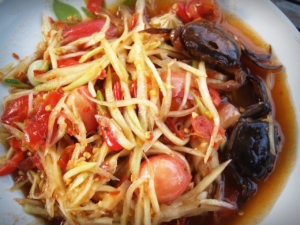 Most Thais make a visit every day or two to one of the many local Thai food markets. That is where they buy their fresh vegetables, fruit, herbs, fish, meat and other food stuffs.
Most Thais make a visit every day or two to one of the many local Thai food markets. That is where they buy their fresh vegetables, fruit, herbs, fish, meat and other food stuffs.
Apart from a few condiments, most Thais cook only fresh food. Even many of the desserts are prepared with fresh ingredients. Very rarely will you find processed, refined or artificial foods in a Thai kitchen.
It’s How They Prepare Their Food
Skeptics of the Thai diet often say it contains too much refined oil and sugar. But compared other countries, Thais probably fry much less of their food.
Most Thai dishes certainly use less oil, and they don’t often deep-fry as much as other countries. Look at Chinese cooking, for example, where oils are heated to extremely high temperatures. Oils heated like this have been shown to be carcinogenic. This is not an issue in Thai cooking.
Yes, refined oils are used but sparingly and in moderation.
So What Sort of Foods Do They Eat?
Here’s a quick list of the typical types of food in a Thai diet:
Green Leafy Vegetables
There’s absolutely no doubt about it, the Thais love their greens.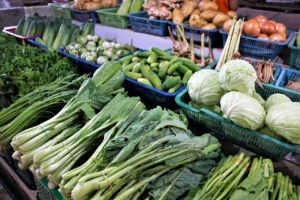
“Pak” is the Thai word for vegetables, and most Thai dishes contain at least one or more different pak, green or otherwise. A dish rarely, if ever, gets served without some type of veggie.
In Thai cuisine you’ll see a lot of cabbage, kale, water spinach/morning glory, broccoli and a number of healthy veggies which are only found locally.
Lots of Fruit
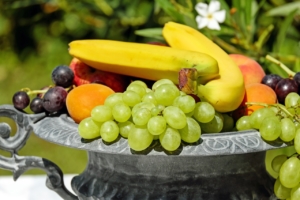 The Thais eat an amazing amount of fresh fruit.
The Thais eat an amazing amount of fresh fruit.
We have known for years the nutritional benefits of having fruit in our diets. Fruit is full of phytonutrients, which help to protect the body against disease, as well as providing a variety of vitamins and minerals.
Plenty of Fish and Seafood
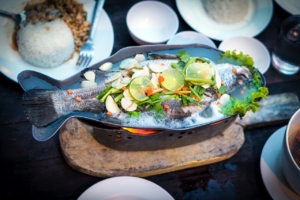 Research has shown that a diet heavy in Omega 3 is a contributing factor in reaching an old age. In fact, most of the countries that hit the top spots in the WHO list consume a lot of fish.
Research has shown that a diet heavy in Omega 3 is a contributing factor in reaching an old age. In fact, most of the countries that hit the top spots in the WHO list consume a lot of fish.
Fish is a great source of Omega 3, and the Thais eat an awful lot of it. They love fish and barely a couple of days goes by when they don’t eat it. This is probably why Thailand is so high on the WHO list.
Herbs & Spices
Thai food would not be Thai Food without the abundance of herbs and spices. Humans have understood the medicinal and nutritional benefits of these for millennia.
Make a trip the local market and you’ll see the vast array of different herbs available. They regularly use basil, mint, kaffir lime leaves, asiatic pennywort, coriander, and more.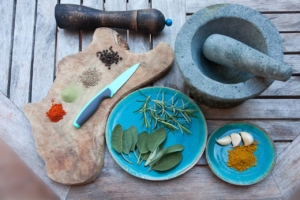
But the one thing that everyone associates with Thai food is spice. In particular, it is spicy! Chillies are rich in Vitamin C, and the antioxidant properties may help to speed up your metabolism. Chillies may also have anti-bacterial and anti-carcinogenic properties.
Tuberous Rhizomes
Tuberous rhizomes are the storage systems of plants (called tubers) that come out of the ground.
The most common of these is ginger. Ginger is used extravagantly in Thai cuisine. They eat a lot of it and its medicinal benefits have been known since Egyptian times.
Another amazing tuberous rhizome, turmeric (which contains the compound curcumin) has also been used for its medicinal benefits for millennia.
Garlic
You either love it or you hate it. But if you are one of those who loves it, you are in the right place.
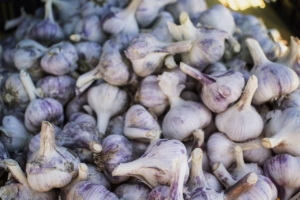 Not only does garlic add a wonderful aroma to every dish, it is also a superhero in the food world. Garlic is another food that has been known for millennia to provide health benefits. It has long been known to help prevent disease, as well as being used to cure disease. Garlic is believed to be beneficial in preventing cancer, as well as being beneficial to heart heath, and helping to prevent atherosclerosis.
Not only does garlic add a wonderful aroma to every dish, it is also a superhero in the food world. Garlic is another food that has been known for millennia to provide health benefits. It has long been known to help prevent disease, as well as being used to cure disease. Garlic is believed to be beneficial in preventing cancer, as well as being beneficial to heart heath, and helping to prevent atherosclerosis.
The Thai diet uses both raw and cooked garlic in many of its dishes.
They Love Coconuts
Even as a replacement for dairy milk, coconut milk is a better choice.
Coconut oil seems to make the headlines a lot these days. There are some health experts who worship it, and others who loathe it.
Thais don’t really consume coconut oil in large quantities, but they do use the cream or milk of the 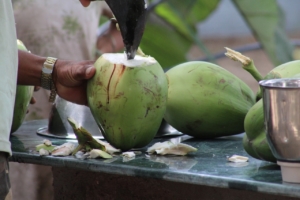 coconut flesh, especially in soups. They also have a lot of dishes which take fresh or dried coconut. So they will be getting some of those Medium Chain Triglycerides (MCTs) everyone talks about, but only in moderation.
coconut flesh, especially in soups. They also have a lot of dishes which take fresh or dried coconut. So they will be getting some of those Medium Chain Triglycerides (MCTs) everyone talks about, but only in moderation.
And let’s not forget, they also like to chop open a fresh coconut and drink the water. So do we – it’s very refreshing, especially if it’s nice and cold.
Ok, so we’ve mentioned the types of foods that Thais love. But what about the foods they manage to avoid?
What the Thais Manage to Avoid
They Avoid Gluten
Thais just aren’t into bread that much, so there’s very little gluten in their diet. Their staple food is rice, which is gluten free. Their noodles are also made from rice and their desserts are often rice based or coconut based.
Gluten has been proven to be one of the scourges of the 21st century. Many people do not have the ability to digest gluten properly so it can wreak havoc on the human body, including the immune system.
They Eat Less Dairy
We’ve already mentioned that Thais have more coconut milk or cream in their dishes than dairy milk.
This is somewhat logical because there are fewer cows in Southeast Asia than in the pastures of Europe or North America. Perhaps this is why lactose intolerance isn’t the same problem in the west as it is in Asia.
But there are other issues that all humans face with dairy, such as certain protein molecules that are not good for cell health. Having less dairy in their diet means less exposure to these potentially harmful proteins.
Lifestyle Choices
So we’ve mentioned the food intake. What else can affect someone’s ability to reach old age?
The other contributory factors to a person’s longevity are usually found in their lifestyle choices. These are things like their positive attitude, religious faith and even intellectual curiosity.
Here are a few lifestyle choices that we think make a difference in Thai culture:
Thais Remain Active Into Old Age
Thais remain relatively active even after retirement. We often see elderly Thais in their 70s, 80s or even 90s still working in shops, walking around the markets, or even cycling.
They Avoiding Stress – Sabai Sabai

Thais live simple lives and try and avoid stress. Most importantly, they laugh a lot. Should we expect otherwise in the land of smiles?
Smiling is good for you. It is not cool in Thailand to lose your temper, and because of that so many Thais stay calm no matter how stressful a situation may seem to us. They are very good at not expressing anger.
That means lower blood pressure, healthier arteries and, quite simply, a far more efficiently functioning body.
Their Religion Is Part of Everyday Life
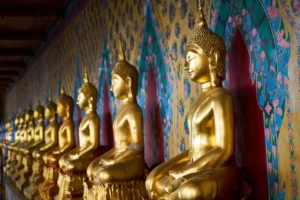
Everything about the Thai Buddhist culture has a way of conjuring up feelings of tranquility and peace of mind.
Many words spring to mind when we think of Buddhism and religion in Thailand. How about Zen, serenity and ying and yang?
It has been proven that spirituality and religion helps you live longer. It seems to be working for the Thais.
They Smile a Lot
There’s not much else to say: Smiling is good for you. It makes you feel happier and helps you to live longer.
Some studies have even shown that smiling can help to heal the body.
They Take a Lot of Massages
Massages are a way of life in Thailand. They are as much as part of the culture as elephants and Thai cuisine. And the art of Thai massage has also been around for millennia.
Even in areas throughout the capital and the rest of Thailand, where tourists very rarely set foot, you will still see massage parlours full of locals.
The benefits of massage are obvious in terms of relaxation. But another benefit is that they may also get our bodies lymph systems moving more efficiently, which in turn helps our immune system.
Conclusion
Whether you are living in Thailand or only visiting, you will have plenty of opportunities to explore the reasons why Thais manage to live such long and healthy lives.
While a healthy diet is doubtless a major factor, they also have a great climate, a relaxed Thai culture and a stress-free way of life.
Immersing yourself in Thailand and its culture can only have positive effects on your body and your health.
Please see our other related articles:
Local Thai Food Markets in Phuket
Phuket’s Best Health and Fitness Gyms
Muay Thai Boxing and Training Camps in Phuket
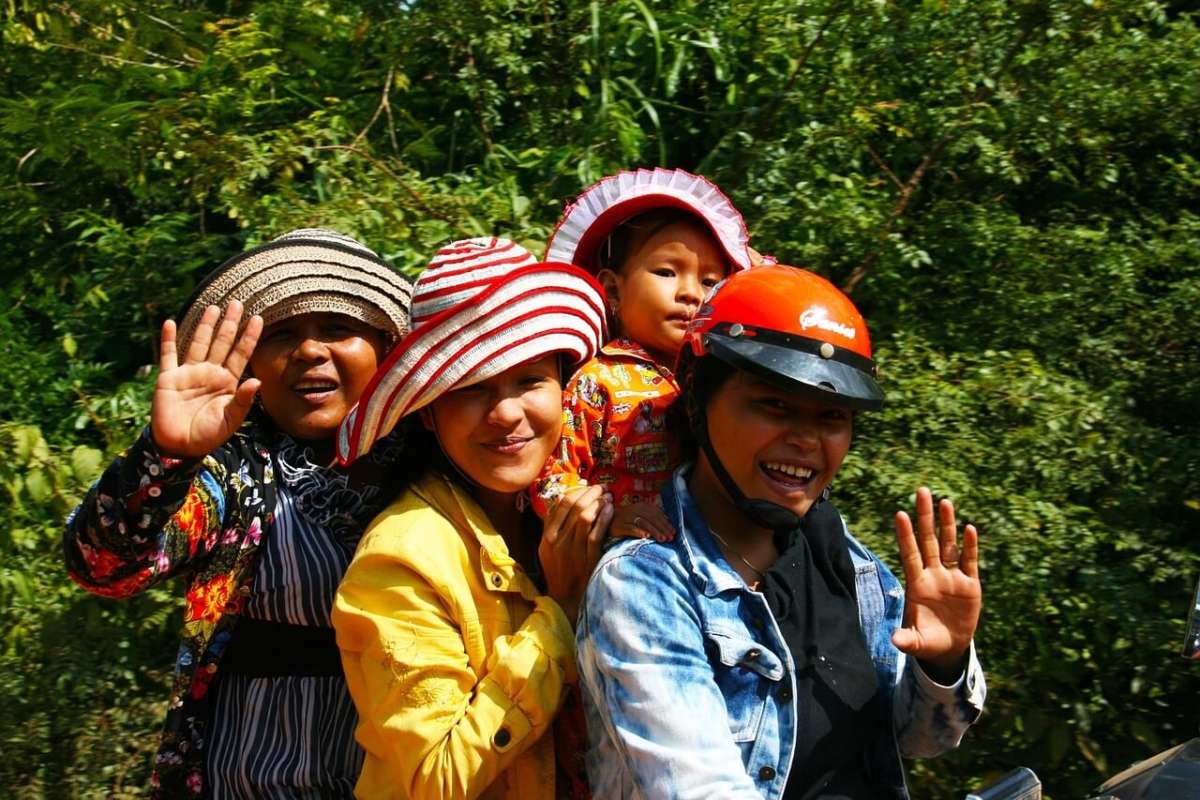

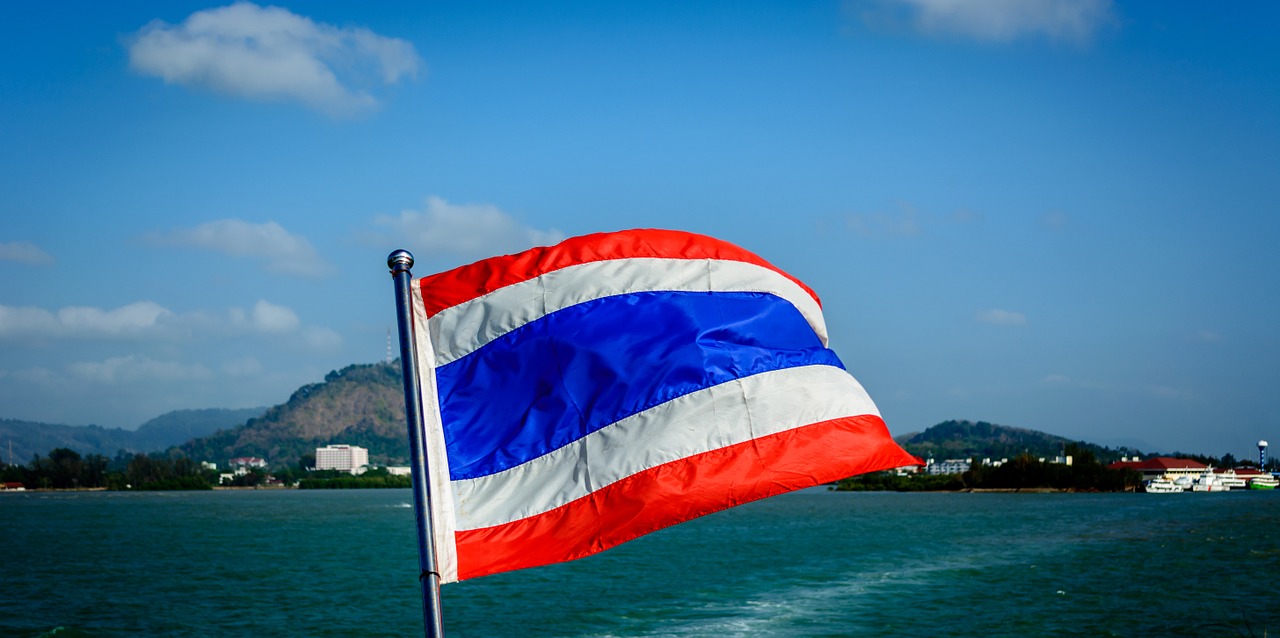




Social Contact